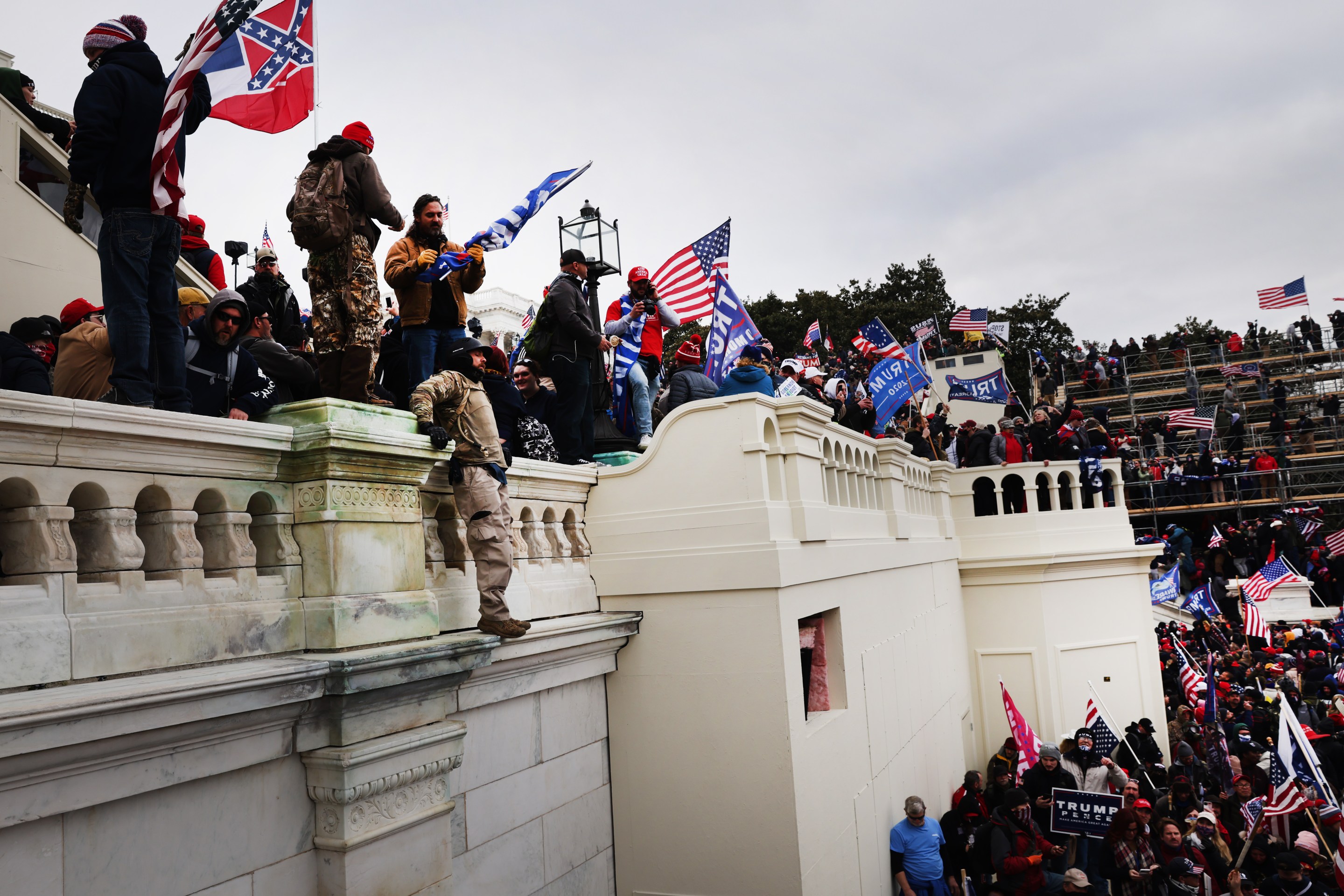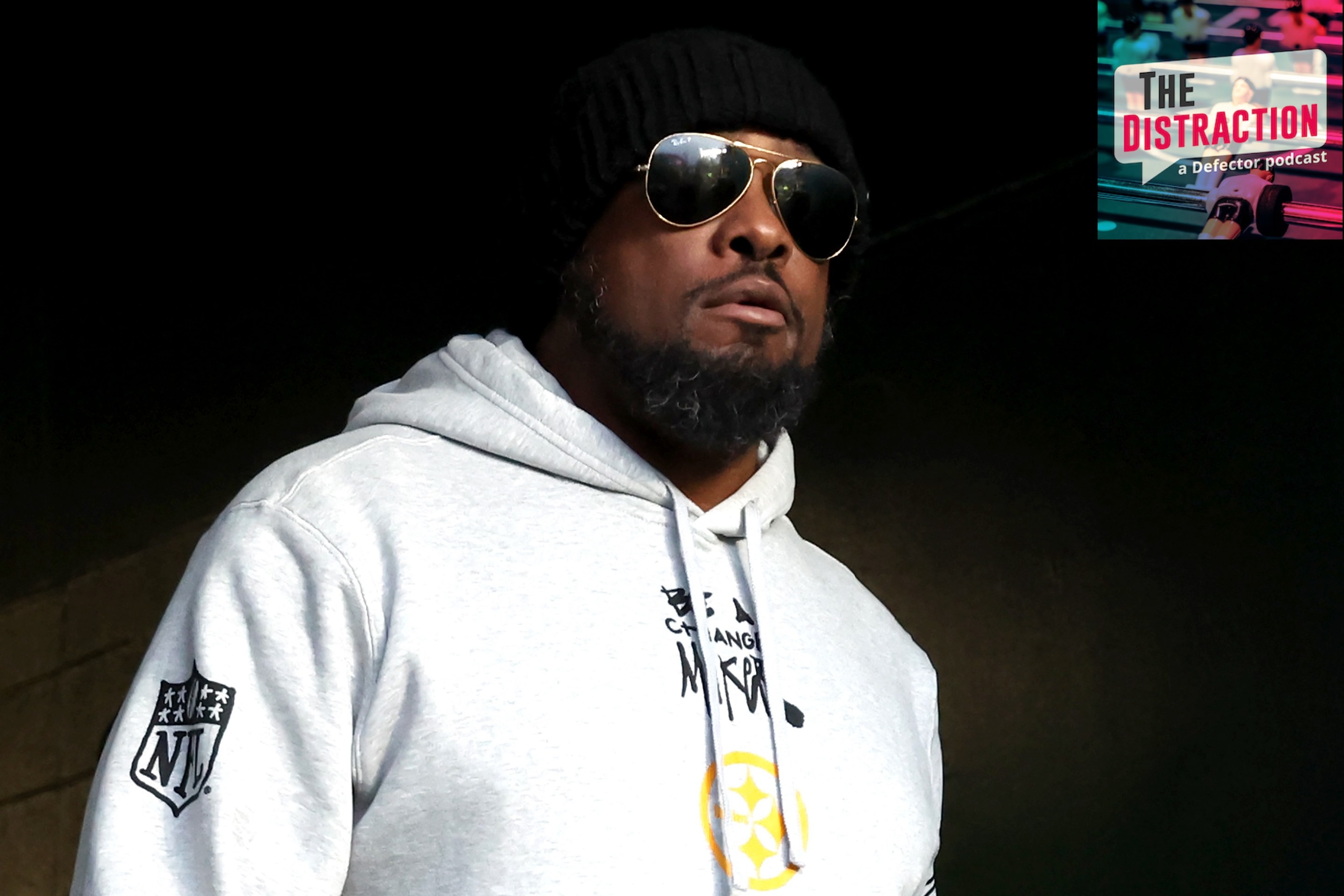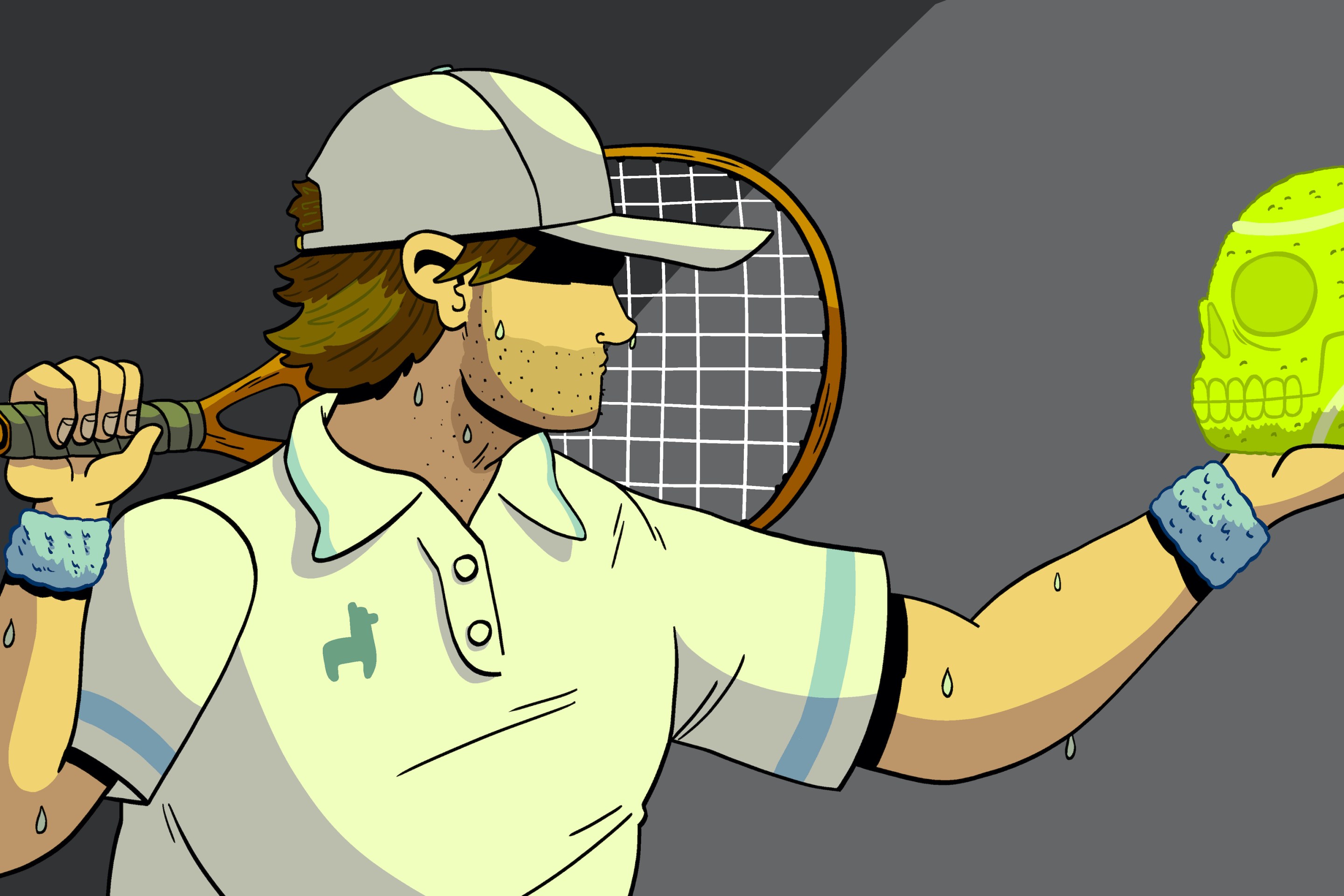Donald Trump does not become president of a country by accident, although there has inarguably been a strong slapstick element to it. A country would first have to be depraved enough to produce a Donald Trump in the first place, and then it would have to go on getting progressively sicker in ways that permitted him to rise, through one egregious public idiocy after another and from one act of casual defilement to the next, to the sort of prominence that would make that presidential campaign possible. It would have to be sick in ways that would make it such that long before he inexorably won his party's nomination and then the nation's highest office, nearly every American knew his name. The country would have to be distracted and defeated and deluded enough to believe that this qualified him, and even qualified him in unique ways. It would have conflated not just who Trump appeared to be on TV with who he really was, but its own governance with unusually slow-moving TV programming.
The people that knew Trump's name didn't really know what he was, or anyway couldn't believe the crabbed and pathetic fact of it despite his repeated assertion and performance of it. They knew him as a gilded living metonym for the idea of business success, and elected him president in what amounted to a casting decision. It was his second time in the role of America's Richest Bad Boy, but after trying it on for real and failing badly in the previous millennium Trump flourished when given the opportunity to play it in a more consequence-free way, as a character on reality television. He ran as a sort of hybrid of those two personas, with the implied Olympian mastery of the more recent iteration filigreed with the unvarnished retrograde bigotry and cheesy showbiz thirstiness of the original. They had a complementary aspirational appeal, at least to people whose highest aspiration was to say and do and take whatever they wanted, whenever they wanted it, forever. Trump was admirable, to those who admired him, because he was living proof that a person could be an absolutely replacement-level asshole and also be untouchably rich and famous and respected and, because of how editing works, also always right.
Trump easily superimposed his blowzy fixations and default rich-kid binaries on his new identity as a politician, which makes sense if you have seen what our politics are like. Trump's understanding of the world and way of doing politics mirrors the gossipy TV shit he's revered his whole life—who's hot and who's not, gloating victory and shameful humiliation, feuds and betrayals and shocking sweeps-week plays. This is a pretty narrow and facile way of being in the world, but the damage that leads Trump to see life as an endless series of Entertainment Tonight segments that should by rights all be about him proved jarringly easy to fit onto and over a politics that wasn't really about anything more interesting.
The first time Trump ran, it was as the person who could and would avenge various offenses against his followers' honor in ways that his opponents were too weak to do and too compromised even to attempt. When he ran again, during the second zenith of a plague that he'd alternately ignored and denied, he didn't even bother making that pitch. He did not claim to have fixed the problems he'd done so much to create, or even to have an idea about how to fix them; he ran against those problems as he understood them, which was as if they were petty and jealous rivals unfairly trying to make him look bad, but mostly he ran as The President, and on the demand that what was his must be allowed to remain his, as it was his by right. Trump ran as himself and only as himself, which is to say he ran as the bulletproof avatar of a brutal, arbitrary, and manifestly untenable status quo that had finally collapsed into a grim loop of defiant public protest and unaccountable state violence. He got many more votes the second time around than he did the first, but this time he lost.
One of the most important things to know about Trump is that he never has a plan. He barely has an itinerary. He simply moves from one flubby gilded hustle to the next, dedicating each moment to whatever feels good or whatever he thinks looks strongest. What mess he leaves behind is by definition not his problem, and he's always already somewhere else by the time the stain sets. Trump is used to having other people do what he says, because he is richer and more powerful than them; that people have almost always done just that has made him soft and weak and strange, but also it has seldom led to him being seriously inconvenienced. He'll call that a win.
So of course Trump didn't have a plan for losing the election. He expected that the people working under him—that is, the entire United States government—would find a way to stop the election that he'd lost from becoming official when he gave that order, but he had no sense of how that might work beyond them just somehow doing it. He promised evidence that would show he was right and then told other people to find it. It never came, but at some point he just started acting as if it had been delivered and denied, and began talking about how unfair that was.
It was his opinion that he'd won ten or so million more votes than he'd actually received, a victory that Trump, Trumpianly, called "a sacred landslide." On Wednesday, after he told them to do it, hundreds of people who live to share Trump's opinions overran the U.S. Capitol building on his behalf, because they believed they were doing their patriotic duty or at least serving their own unenlightened self-interest; it is a pillar of Trumpism not to recognize a distinction between the two. They were mostly following through on the promise that has always been at the heart of Trump's appeal, which is that they would get to be a part of his greatest deal ever, and cut in ahead of every less-connected other person when it came time to share the winnings, and enjoy the premium luxury finishes and absolute personal impunity synonymous with the word "Trump."
Trump has used this glib old huckster's promise long before it became the heart of his last and most ambitious grift, to sell real estate seminars and signature neckties and ghostwritten books about winning and any number of other similarly valueless things. Trump has always promised to make the profoundly broken American state work for the people that voted for him, or at least more readily and brutally against the people that those voters didn't like. He really did deliver on the last bit, but Trump's success in unleashing the full idiotic force of American sadism was less a matter of anything he actually did and more a matter of the license he gave others to do as he does—to do whatever outrageous harm they want to do, to demand whatever they want simply because they wanted it.
As the clock ran out on his presidency, Trump began making demands that were more and more difficult and dangerous and degrading to fulfill, and when he stopped getting those things he simply demanded them again, this time more bitterly and with redoubled grandiosity. By Wednesday, the conflations were total—for him to lose the presidency was inherently unconstitutional, it was illegal, it went against God; the only truly patriotic thing to do was to keep the country under his singularly damp command, indefinitely; to save the nation, everything that was not Trump would need to be permanently replaced with him. "We're going to walk down," Trump told his people on Wednesday, "we're going to walk down to the Capitol, and I'll be there with you, and we're going to cheer on our brave senators and congressmen and women and we're probably not going to be cheering so much for some of them." Trump didn't actually walk with his people down to the Capitol, because he doesn't walk as a matter of course and because he doesn't do his own errands. His loyalists rushed the Capitol and briefly, giddily, took it over and defaced it on his behalf; the president was driven home to watch it on television and complain on Twitter about all the people who had let him down.
By the time Trump's people breached the Capitol building, the story in which they saw themselves had expanded far beyond him. He was still very much its central character, and his permanent presidency was still its main aim, but there were by the end a lot of strange things in it that had been brought in from outside. The rot and drift and killing abstraction in American life that had made his first campaign possible—that emptiness and parlousness that Trump correctly adduced as proof of a great and longstanding betrayal of the public trust and incorrectly claimed that he would fix—had only grown, and the stories that people told about Trump on television and online and to themselves metastasized in turn.
Trump's second campaign was something much more like fan-fiction than politics, but while all of it centered upon him, there were variants of it available for every taste. Some of the people that rushed the Capitol on Wednesday did so because they believed in a congeries of brutal and incoherent fantasies about Trump's enemies. They believed that Trump would reveal the cures for cancer and diabetes that those satanic conspirators had hidden; they believed that he would reveal incontrovertible evidence not just of his electoral win but of his enemies' soaring cosmic perfidy; they believed that there would then be summary public executions of these enemies, who happened mostly to be the villains of conservative cable news programming over the last decade and change, and that those executions would be overseen by Trump's allies in the military and law enforcement. These people told and sold each other these things online, over and over and over again, and the stories grew, and the people hearing and telling them changed in strange and terrible ways. Other marauders, who were perhaps less inclined towards the collective online fantasy that mushroomed in lurid parallel with Trump's ongoing neglect but who were just as happy to do violence in his name, believed that when they moved to capture and kill Trump's enemies they would simply be permitted to do so, because of their relationship with the man himself, and the unspoken and wildly presumed benefits they imagined that conferred.
None of that happened, of course. Politicians who thought they stood to gain from doing so made some gestures to the effect of honoring Trump's bleary and incoherent orders, at least until it was time for them to hide with their peers from the people who'd broken in to do whatever it was they thought Trump wanted them to do. Trump's people set up a literal gallows outside and brought rifles and zip ties inside with them, but then they were stuck there, chanting and desecrating and posting and posting and posting it all online to advance their own individual stories. Finally they were just milling aimlessly around the grandest building in the country, the place where government ostensibly lives, like video game characters waiting to be raptured up to the next level, or onto the quest after this one.
On Trump's behalf, at Trump's behest, his people had done their part. But because anyone who spends enough time thinking about Trump comes to sound and think and fail like him, there wasn't even really any demand to make beyond More Trump. There was no one around to threaten, even. These people had taken Trump and his abettors seriously, and answered the language that they used—the endless calls to fight, to avenge the great and dishonorable betrayals of an enemy that deserved no mercy—with commensurate action. They'd expected to confront their enemies, and find catharsis, and victory. But the chamber was empty, and there was nothing to do but shout and pose.
On Friday night, Twitter suspended Trump's account; the platform finally banned him when, like a true poster, he evaded the suspension by posting his usual furious spuriousness from various other accounts. It did not really get quieter without him, because Twitter doesn't really ever quiet down, but there was a strange realization under all the signifying and counter-signifying and multiply exhausted joking around. Trump's sudden absence pointed towards a greater, older vacancy.
In a country where people expected or demanded anything more from their government than violence and theatrical pomp, Donald Trump would not have gotten very far. Those are the only things he ever promised or cared about delivering, and he rose as far and as fast as he did against opposition that was unwilling or unable to offer anything but its own softer versions. The stories that sprung up around if not quite about Trump were as brutal and lazy as the man himself; they teased themselves endlessly from one episode to the next, building toward a brutal grand finale in which America's heroes would murder its villains, on TV, at some time to-be-determined. All the grifts rhymed, even if none of them actually made sense.
But, in the absence and abandonment of this long low moment, every idle sadism and dishonesty flourished like a particularly insistent invasive plant. Here is the fact of it: the country’s leaders cannot quite bring themselves to say that the lives of people living in this country matter at all, let alone act as if they do. The state fails daily; it has somehow forgotten how to do anything but hurt and cannot even agree that it would be good to try to help. It does not tell the truth as a matter of course, which gives license to everyone adrift in this to believe whatever story they find most compelling. In the ways that matter most, in the places where it is needed most, the state barely exists. Where there is supposed to be strength is only power and brute force; what is supposed to be held in common has been openly looted; the triumphal national image is gnawed to bits by a frantically denied shame and raw fear.
The distance and defeat in this is awful to behold, and has created a nation that is both desperately strident and shockingly servile. In the absence of any capacity or will to demand more from it, politics just becomes what people argue about instead of what's actually happening to them. It's just a TV show, and people watch it as such. This was the one big thing that Trump understood—not just that he could do whatever vile thing he wanted, but how many millions there were who truly could not imagine any greater pleasure or higher calling than the chance to do it for him.





